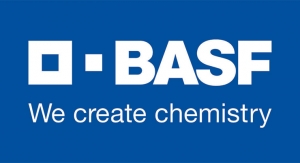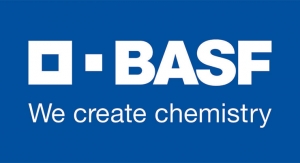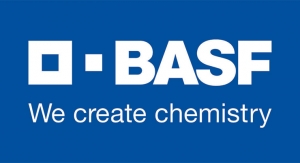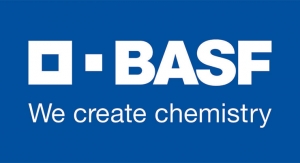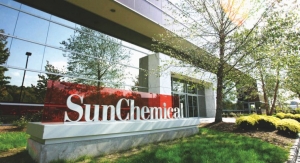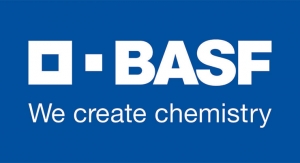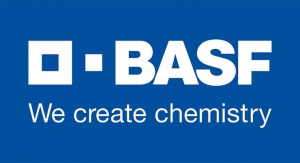05.09.17
By 2020, predictions indicate that 70 percent of light vehicles worldwide will use turbocharged engine technology1. As a result, BASF is introducing the use of its Ultramid Endure polyamide with high heat aging resistance up to 220° C in these engines. There are two new powertrain applications utilizing the company’s high heat resistant Endure thermoplastics; the air intake manifold with integrated charge air cooler, and hot-side turbo duct. Both debut on the 2017 Alfa Romeo Giulia with the new 2.0L GME engine.
Turbochargers provide high pressure air to the engine that makes fuel burn efficiently – delivering greater engine power while consuming less energy. However, most standard thermoplastics cannot maintain desired performance under the high heat and pressure developed in a turbocharged engine, which is why BASF developed the Ultramid Endure portfolio of engineered resins. The Endure grades offer high heat aging resistance, good processability, excellent weld line strength and are available for production in North America, Europe, and Asia to support global Original Equipment Manufacturer (OEM) programs.
The Ultramid Endure portfolio can be used in many air induction applications of the turbocharged system including the air intake manifold, charge-air ducts, resonators, intercooler end caps and throttle bodies. It can also achieve long-term service temperatures of 220° C, and withstand peak temperatures of 240° C. Its notable heat aging behavior results from an innovative stabilization system, which greatly reduces oxygen attack on the polymer surface.
“We predict that about 20 percent of all turbocharger applications will require a high heat resistant plastic as engine temperatures increase due to downsizing,” said Mike Chiandussi, Powertrain Market Segment Specialist at BASF. “BASF is able to deliver not only the innovative materials necessary for these applications, but also the design and welding expertise and know-how to ensure that suppliers and automakers can incorporate them successfully into their turbocharger system parts.”
BASF collaborated with ABC Group Inc. to develop the hot-side turbo duct for the Alfa Romeo Giulia. For this application, ABC Group used BASF’s Ultramid Endure D5G3 BM, a 15 percent glass fiber reinforced blow molding grade, which has a high melt strength and superior heat aging resistance.
ABC Group leveraged BASF’s material and joining technology expertise to optimize the infrared (IR) welding parameters for this part. It was crucial to achieve strong welds to insure the long-term durability of the duct.
“After conducting numerous resins trials through molding, welding and vigorous validation testing, we were able to use an industry-first material and meet the significant requirements for this application,” said Mary Anne Bueschkens, CEO of ABC Group. “The part requires many weld connections, and our engineers worked closely with BASF’s material and joining experts to understand the unique requirements, allowing us to fine tune our infrared welding technology, and assuring success of the welding process for this demanding high temperature duct.”
BASF worked with Magneti Marelli to develop the air intake manifold with integrated charge air cooler for the Alfa Romeo Giulia. The need for materials to withstand a 200°C continuous use temperature made this air intake manifold a prime candidate for the Ultramid Endure D3G7, a 35 percent glass fiber injection molding grade.
The air intake manifold has a burst pressure requirement; therefore, Magneti Marelli needed a solution that offered reliable weld strength at elevated temperatures. Using BASF’s design, material and processing expertise, Magneti Marelli could achieve the required burst strength and durability targets for the assembly.
“BASF’s technical support was useful to ensure the application passed the burst requirement,” said Marcello Colli, Product Manager Throttle Bodies, at Magneti Marelli. “Their material and welding experience ensured that we could use this heat resistant material and meet long-term durability targets.”
As heat under-the-hood increases, the Ultramid Endure portfolio of solutions enables automakers to achieve engine downsizing and turbocharging without sacrificing performance.
This Alfa Romeo-exclusive engine debuts in the new 2017 Alfa Romeo Giulia and Giulia Ti premium mid-size sedan. The 2.0-liter Alfa Romeo engine delivers 280 horsepower and 306 lb.-ft. of torque, allowing it to launch from 0-60 mph in 5.1 seconds, and achieve a top speed of 149 mph.
Turbochargers provide high pressure air to the engine that makes fuel burn efficiently – delivering greater engine power while consuming less energy. However, most standard thermoplastics cannot maintain desired performance under the high heat and pressure developed in a turbocharged engine, which is why BASF developed the Ultramid Endure portfolio of engineered resins. The Endure grades offer high heat aging resistance, good processability, excellent weld line strength and are available for production in North America, Europe, and Asia to support global Original Equipment Manufacturer (OEM) programs.
The Ultramid Endure portfolio can be used in many air induction applications of the turbocharged system including the air intake manifold, charge-air ducts, resonators, intercooler end caps and throttle bodies. It can also achieve long-term service temperatures of 220° C, and withstand peak temperatures of 240° C. Its notable heat aging behavior results from an innovative stabilization system, which greatly reduces oxygen attack on the polymer surface.
“We predict that about 20 percent of all turbocharger applications will require a high heat resistant plastic as engine temperatures increase due to downsizing,” said Mike Chiandussi, Powertrain Market Segment Specialist at BASF. “BASF is able to deliver not only the innovative materials necessary for these applications, but also the design and welding expertise and know-how to ensure that suppliers and automakers can incorporate them successfully into their turbocharger system parts.”
BASF collaborated with ABC Group Inc. to develop the hot-side turbo duct for the Alfa Romeo Giulia. For this application, ABC Group used BASF’s Ultramid Endure D5G3 BM, a 15 percent glass fiber reinforced blow molding grade, which has a high melt strength and superior heat aging resistance.
ABC Group leveraged BASF’s material and joining technology expertise to optimize the infrared (IR) welding parameters for this part. It was crucial to achieve strong welds to insure the long-term durability of the duct.
“After conducting numerous resins trials through molding, welding and vigorous validation testing, we were able to use an industry-first material and meet the significant requirements for this application,” said Mary Anne Bueschkens, CEO of ABC Group. “The part requires many weld connections, and our engineers worked closely with BASF’s material and joining experts to understand the unique requirements, allowing us to fine tune our infrared welding technology, and assuring success of the welding process for this demanding high temperature duct.”
BASF worked with Magneti Marelli to develop the air intake manifold with integrated charge air cooler for the Alfa Romeo Giulia. The need for materials to withstand a 200°C continuous use temperature made this air intake manifold a prime candidate for the Ultramid Endure D3G7, a 35 percent glass fiber injection molding grade.
The air intake manifold has a burst pressure requirement; therefore, Magneti Marelli needed a solution that offered reliable weld strength at elevated temperatures. Using BASF’s design, material and processing expertise, Magneti Marelli could achieve the required burst strength and durability targets for the assembly.
“BASF’s technical support was useful to ensure the application passed the burst requirement,” said Marcello Colli, Product Manager Throttle Bodies, at Magneti Marelli. “Their material and welding experience ensured that we could use this heat resistant material and meet long-term durability targets.”
As heat under-the-hood increases, the Ultramid Endure portfolio of solutions enables automakers to achieve engine downsizing and turbocharging without sacrificing performance.
This Alfa Romeo-exclusive engine debuts in the new 2017 Alfa Romeo Giulia and Giulia Ti premium mid-size sedan. The 2.0-liter Alfa Romeo engine delivers 280 horsepower and 306 lb.-ft. of torque, allowing it to launch from 0-60 mph in 5.1 seconds, and achieve a top speed of 149 mph.


